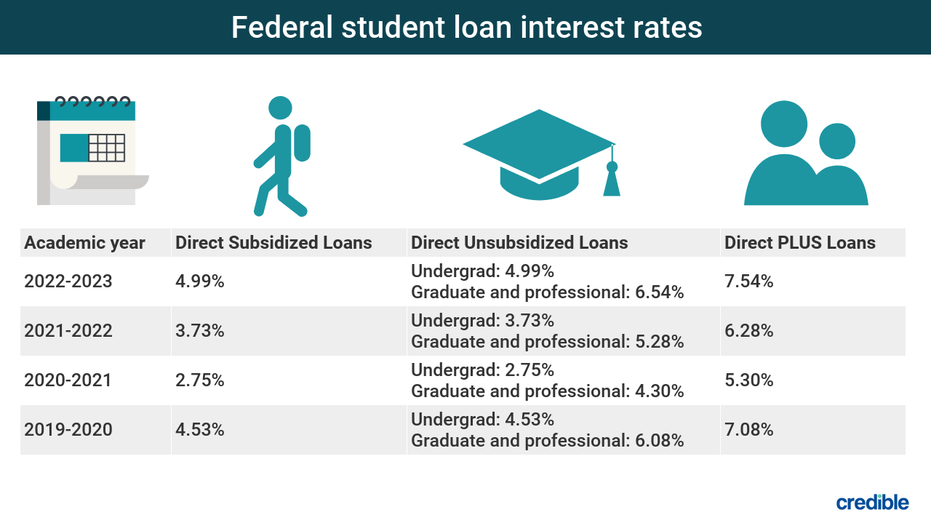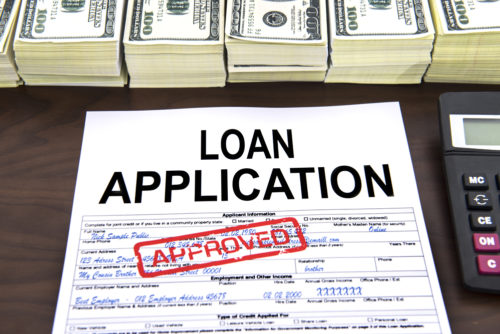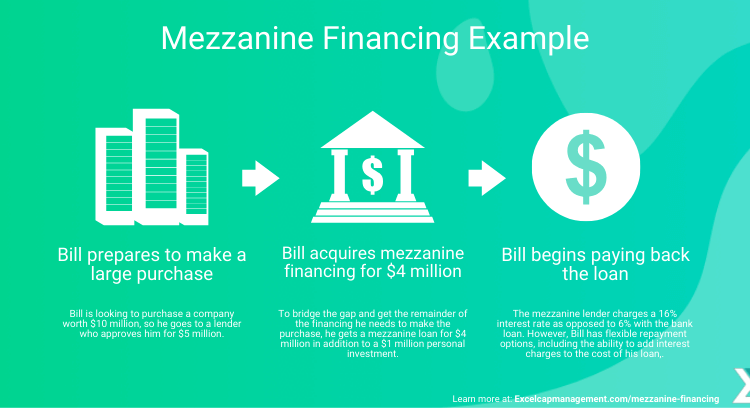Securing financing for additional investment properties is a significant hurdle for many real estate investors. A home equity loan on investment property offers a potential solution, but navigating the complexities of loan eligibility and varying lender requirements presents challenges. This guide examines the process, outlining the advantages and disadvantages of this financing method. It will cover essential aspects including eligibility requirements, the differences between home equity loans and HELOCs, current market trends, and tax implications, among other key points.
Toc
- 1. Understanding Home Equity Loans and HELOCs for Investment Properties
- 2. Eligibility and Requirements for Investment Property Loans
- 3. Related articles 01:
- 4. Finding the Best Home Equity Loan for Your Investment
- 5. Tax Implications of Home Equity Loans on Rental Properties
- 6. Alternative Financing Options for Investment Properties
- 7. Related articles 02:
- 8. State-Specific Considerations: Texas and Florida
- 9. Actionable Steps and Best Practices
- 10. Conclusion
Understanding Home Equity Loans and HELOCs for Investment Properties

When it comes to financing investment properties, understanding the differences between a home equity loan and a home equity line of credit (HELOC) is essential. Both options allow investors to tap into the equity built up in their properties, but they serve different purposes and come with distinct features.
What is a Home Equity Loan?
A home equity loan on investment property is a fixed-rate loan that allows you to borrow against the equity you’ve accumulated in your property. This type of loan provides a lump sum, which you will repay over a specified term, typically with fixed monthly payments. For real estate investors looking to fund substantial purchases or renovations, home equity loans can be particularly attractive due to their predictable repayment structure.
What is a HELOC?
In contrast, a HELOC is a revolving line of credit secured by your home equity. It allows you to draw funds as needed during a draw period, usually lasting 5 to 10 years, followed by a repayment period of up to 20 years. The interest rate on a HELOC is typically variable, which can lead to fluctuating monthly payments. This flexibility can be beneficial for investors who may require funds sporadically for various projects.
Key Differences Between Home Equity Loans and HELOCs
| Feature | Home Equity Loan | HELOC |
|---|---|---|
| Disbursement | Lump sum at closing | Draw as needed |
| Interest Rates | Fixed | Variable |
| Repayment | Fixed monthly payments | Interest-only payments during draw period, then principal + interest |
| Suitability | Best for large, one-time expenses | Ideal for ongoing expenses |
For example, if an investor needs a specific amount for a property purchase, a home equity loan may be the better choice. Conversely, if they require funds for renovations over time, a HELOC could be more advantageous. Understanding these options is crucial for making informed decisions about financing your investment properties.
Eligibility and Requirements for Investment Property Loans

Obtaining a home equity loan on an investment property often comes with stricter requirements compared to loans for primary residences. Here are the key factors to consider when assessing your eligibility for a home equity loan on investment property.
Credit Score Requirements
One of the most critical factors lenders consider when approving a home equity loan on investment property is your credit score. A higher credit score is generally required for securing a home equity loan on an investment property. While you might qualify for a loan with a credit score as low as 620 for a primary residence, many lenders prefer a score of 700 or higher for investment properties. However, it’s important to note that some lenders offer programs for borrowers with lower scores, albeit at higher interest rates. For example, a lender might offer a home equity loan to a borrower with a 660 credit score, but the interest rate will likely be 1-2 percentage points higher than for someone with a 750 score. This nuance provides a more realistic view of credit score requirements.
Loan-to-Value (LTV) Ratio
The loan-to-value ratio is a crucial metric that lenders use to determine how much you can borrow against your property. For investment properties, the typical LTV ratio is lower than for primary residences, often ranging from 60% to 75%. However, LTV ratios can be influenced by factors beyond just the outstanding mortgage balance, such as the property’s appraisal value and the lender’s risk assessment. Additionally, some lenders might offer higher LTV ratios for properties in high-demand areas or with strong rental histories. This flexibility can provide opportunities for investors with valuable properties.
Debt-to-Income (DTI) Ratio
Your debt-to-income ratio is another vital factor in loan approval. Most lenders look for a DTI ratio of 43% or less. This ratio measures the percentage of your monthly income that goes toward debt payments. To improve your DTI, consider paying down existing debts or increasing your income through additional investments. A lower DTI indicates to lenders that you are more capable of managing your debt, making you a more attractive borrower.
Rental History and Income Verification
When applying for a home equity loan on an investment property, lenders often require proof of rental income and a history of successful management. Providing documentation of rental agreements, income statements, and occupancy rates can enhance your application. Demonstrating a consistent income stream from your rental properties can significantly improve your chances of approval.
Cash Reserves
Having sufficient cash reserves is crucial for securing a home equity loan. Lenders typically expect you to have at least six months’ worth of expenses set aside to cover potential vacancies or unexpected costs associated with property management. This requirement helps lenders assess your financial stability and ability to repay the loan. Showing that you have adequate reserves can provide peace of mind to lenders and improve your chances of loan approval.
Finding the Best Home Equity Loan for Your Investment

With various lenders offering home equity loans, it’s essential to know where to look and what to consider when comparing options. Understanding the market landscape can help you find the best home equity loan on investment property.
Who Offers HELOCs on Investment Properties?
While many traditional banks offer home equity loans, credit unions and online lenders may provide more favorable terms for investment properties. It is beneficial to shop around and compare the different products available. Look for lenders specializing in investment properties, as they might have unique programs tailored to real estate investors. These lenders may also offer more flexible terms or lower interest rates, making them an appealing choice.
Comparing Lenders and Interest Rates
Interest rates can vary significantly among lenders based on several factors, including your credit score, LTV ratio, and property type. To find the best home equity loan on investment property, gather quotes from multiple lenders and compare their rates, fees, and terms. This thorough comparison will help you identify the most cost-effective solution for your financial situation. Be sure to inquire about any hidden fees or charges that may affect the overall cost of the loan.
Best Home Equity Loan on Investment Property
Choosing the best loan will depend on your individual needs and circumstances. Factors to consider include the interest rate, associated fees, repayment terms, and the lender’s reputation. A lower interest rate may save you money in the long run, while favorable repayment terms can offer flexibility in managing your cash flow. Don’t hesitate to negotiate terms with lenders to secure a better deal that aligns with your financial goals.
Current Trends in Home Equity Loans
In recent years, the rise of online lenders has significantly impacted the home equity loan market. Online lenders often offer more competitive rates and streamlined application processes compared to traditional banks. However, it’s essential to note that these lenders may have stricter eligibility criteria. Investors should be prepared to provide thorough documentation and possibly face longer approval times for certain lenders. Keeping abreast of these trends can help investors make informed decisions and find favorable financing options.
Impact of Rising Interest Rates
The current economic climate has seen a rise in interest rates, which can make obtaining a home equity loan more expensive. As rates increase, investors may find themselves paying more for borrowing. This situation could impact decision-making, as investors might reconsider their plans for expansion or renovations based on higher borrowing costs. Careful consideration of the financial implications of rising rates is essential for successful investment strategies.
Case Study: Successful Use of a Home Equity Loan
Consider the case of a real estate investor who owns a property valued at $400,000 with an outstanding mortgage balance of $250,000. By applying for a home equity loan with a 70% LTV ratio, the investor can access up to $105,000 in equity. This capital could be used to purchase another property or to renovate the existing one, ultimately increasing their rental income and return on investment (ROI). By leveraging a home equity loan, the investor successfully expands their portfolio and enhances their overall financial position.
Tax Implications of Home Equity Loans on Rental Properties

Understanding the tax implications of a home equity loan on investment property is essential for effective financial planning. As an investor, you must consider how these loans will affect your tax situation.
Deductibility of Interest
One of the significant benefits of a home equity loan on rental property is the potential for tax deductions. The interest paid on a home equity loan used for investment purposes is generally tax-deductible. This deduction can help reduce your overall tax liability, making it a valuable financial strategy for real estate investors. However, it’s crucial to consult with a tax professional to ensure you comply with all tax regulations and maximize your deductions. It’s important to note that the deductibility of interest is subject to limitations and depends on factors such as the use of the property and the overall amount of debt. Be sure to consult a tax professional to determine your eligibility for deductions and understand the limitations imposed by the IRS.
Capital Gains Tax
When selling an investment property that was financed with a home equity loan, you must also consider capital gains tax. This tax is applied to the profit made from the sale of the property, calculated as the difference between the purchase price and the selling price, minus any improvements made. Unlike primary residences, which may have exemptions, investment properties are subject to capital gains tax, so it’s essential to factor this into your investment strategy. Being aware of your potential tax liabilities can help you make informed decisions regarding the timing of your property sales.
Alternative Financing Options for Investment Properties
If a home equity loan doesn’t seem like the right fit, several alternative financing options may be available to you. Exploring these alternatives can provide additional pathways to fund your investment projects.
Cash-Out Refinancing
Cash-out refinancing involves replacing your existing mortgage with a new, larger mortgage, allowing you to access the difference in cash. This option can be advantageous if you can secure a lower interest rate than your current mortgage, enabling you to borrow more and use the excess funds for new investments. Cash-out refinancing can provide a lump sum of cash that can be used for various purposes, including purchasing additional properties or funding renovations.
Hard Money Loans
Hard money loans are short-term loans secured by real estate. These loans are typically easier to obtain than traditional financing but come with higher interest rates. They are often used by investors for quick purchases or renovations. While hard money loans can provide fast access to capital, the cost may outweigh the benefits if you plan to hold the property long-term. Carefully assess your investment strategy before pursuing hard money loans, as they may not be suitable for all situations.
Private Lending
Private lending is another alternative where individuals or groups provide loans to real estate investors. This option can offer flexibility in terms and repayment but may come with higher interest rates. As with hard money loans, ensure you evaluate the costs and benefits carefully before proceeding. Private lenders may be more willing to negotiate terms based on your specific circumstances, which can be advantageous for investors with unique financing needs.
State-Specific Considerations: Texas and Florida

Different states have unique regulations regarding home equity loans on investment properties, and understanding these is crucial for investors. Being aware of state-specific laws can help you navigate the lending landscape effectively.
Home Equity Loan on Investment Property in Texas
In Texas, home equity loans are subject to specific regulations. Investors can typically borrow up to 80% of their property’s value, but lenders may impose additional restrictions and higher interest rates. Understanding these regulations is essential for navigating the lending landscape effectively. Texas law also requires that the loan be used for specific purposes, so be sure to clarify these details with your lender.
HELOC on Investment Property Florida
Florida also has its set of rules regarding HELOCs on investment properties. Generally, you can borrow up to 80% of the property’s equity, but lenders will require thorough documentation of your financial situation. Being aware of these requirements can streamline the application process. Familiarizing yourself with Florida’s lending regulations can help you avoid potential pitfalls and ensure a smooth borrowing experience.
Chase Home Equity Loan on Rental Property
Many large banks, including Chase, offer home equity loans and HELOCs for rental properties. However, the specific terms and conditions can vary widely, so it’s essential to consult directly with the lender to understand their requirements and whether they fit your investment strategy. Chase may have unique programs that cater to real estate investors, making it worthwhile to explore their offerings.
Actionable Steps and Best Practices
To make the most of your investment and secure the best home equity loan, consider the following actionable steps. Implementing these strategies can help streamline your loan application process and improve your chances of approval.
Assessing Your Financial Situation
Before applying for a home equity loan, take the time to evaluate your financial health. Calculate your current equity, determine your DTI, and ensure that you have sufficient cash reserves. Understanding your financial landscape will help you present a strong application to lenders. Consider using financial planning tools or consulting with a financial advisor to gain a comprehensive view of your financial situation.
Shopping for the Best Loan
When looking for a home equity loan on investment property, gather quotes from multiple lenders. Compare interest rates, fees, and repayment terms, and don’t hesitate to negotiate for better conditions. A thorough comparison can lead to significant savings over the life of the loan. Keep in mind that the lowest interest rate may not always be the best option if other factors, such as fees and repayment terms, are less favorable.
Managing Your Debt
Once you secure a loan, create a realistic repayment plan that fits within your budget. Managing your debt effectively is crucial for maintaining a healthy financial position and ensuring the success of your investment strategy. Regularly review your financial situation and make adjustments as needed to stay on track with your repayment goals.
Conclusion
A home equity loan on investment property can be a valuable tool for real estate investors looking to expand their portfolios. By understanding the intricacies of securing such a loan, assessing your financial situation, and exploring your options, you can leverage your equity to achieve your investment goals. Always consult with a financial advisor or mortgage professional to tailor your approach to your unique circumstances and maximize your potential returns. Empower your real estate investments today by exploring the best home equity loan options to propel your financial success.










